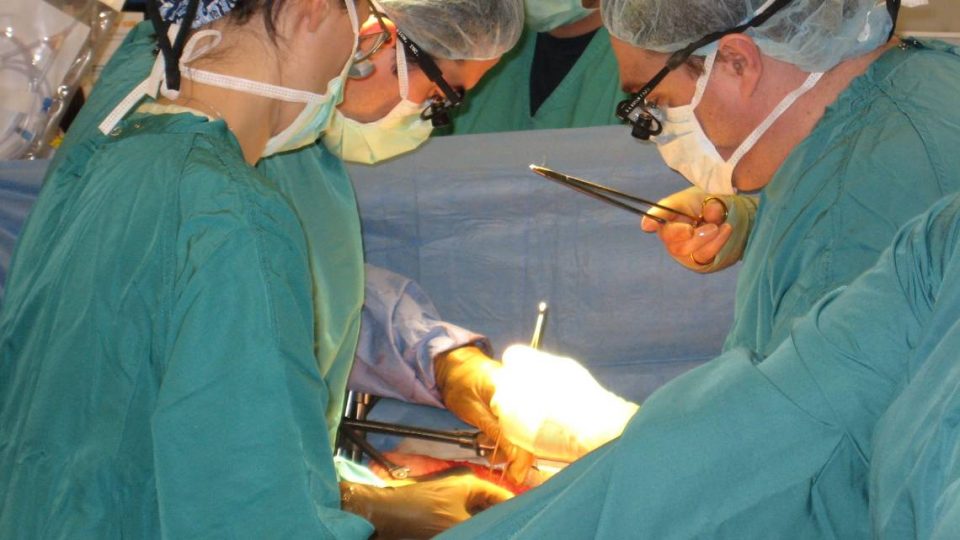In this file photo UNC Health Care surgeons transplant a liver into a patient.
UNC Health Care
Welcome to NC Voices, where leaders, readers and experts from across North Carolina can speak on issues affecting our communities. Send submissions of 350 words or fewer to [email protected].
Reform NC’s organ donation system
The writer is an emergency physician and healthcare strategist who is co-chair of the Kenan-Flagler Business School’s board of advisors at UNC-Chapel Hill..
Emergency physicians like myself often treat patients who experience the debilitating effects of organ failure.
More than 107,000 Americans are waiting for organ donations; 33 patients die every day. The greatest tragedy is that most of this death and suffering is avoidable.
Organ donation in America is run by a system of government monopoly contractors, organ procurement organizations (OPOs), which are entirely unaccountable for their persistent failure. In North Carolina, two of the three OPOs are considered failing organizations by the federal government: They are LifeNet, which is under Congressional investigation from the House Oversight Committee and Carolina Donor Services.
According to federal data, the majority of OPOs are actually failing performance standards, and the Department of Health and Human Services (HHS) finds that this issue costs more than 7,000 lives each year.
The problem is even more pronounced for patients of color, to whom OPOs have been shown to provide inferior service. Emails unsealed by a federal judge even revealed apparent animus, with an OPO executive justifying policy harms to rural patients because they are “dumb f— for living there.”
To deflect criticism, OPOs point to recent increases in organ donations as evidence of an improving system. Not only is this wrong, it is wildly offensive, as research clearly shows that these increases result from dramatic increases in the rate of deaths that medically qualify for organ donation (e.g., the opioid crisis), not improved OPO performance.
OPOs do serve a critical function in our healthcare system. But that’s why it is so important to ensure they do their job effectively.
The status quo is killing patients. Congress and HHS must act to fix this.
Dr. N. Adam Brown
A flaw in NC child welfare system
I am a former Department of Social Services social worker in Davidson County, and it is time for N.C. lawmakers in Raleigh to understand that the state’s child welfare system is failing too many children and families.
High staff turnover due to low-pay, coupled with problems like disparate accessibility to services that can help to keep families together, plague North Carolina’s child welfare system. They are contributing to another serious, widespread problem: Families are being broken-up and children removed from the care of their parents for long periods of times, in some cases indefinitely, without constitutionally-required judicial oversight.
The problem was first discovered in Cherokee County, but we now know it’s not limited to there.
The consequences of extra-judicially removing children from the care of parents are grave. When DSS removes a child without a valid court order, they violate parents’ and children’s sacred due process rights. The agency also places the child in danger of future maltreatment.
When children are removed from the care of parents without court oversight, the biological parents remain the legal custodians, which means they are legally free at any point to regain physical custody. That puts children in danger.
Recently, the N.C. Department of Health and Human Services had to assume control of Bertie County’s Department of Social Services because of the problem of extra-judicial removals of children from their parents’ care. DHHS has discovered similar problems in Cleveland and Gaston counties.
Given what we know about the current situation across multiple N.C. counties, it is incumbent on state lawmakers to act to limit the damage to children and families. The state should take action to investigate all claims of extra-judicial removals and when necessary, remedy past wrongs.
The state should also take preventive measures to preempt this problem in the future, such as stronger state oversight of county DSS agencies and increased pay for social work staff to help decrease turnover rates within counties. Constitutional rights and child safety are at stake.
Tyler Paul, Greensboro


